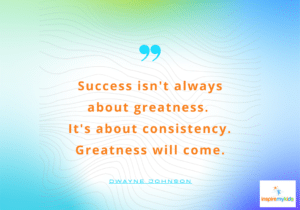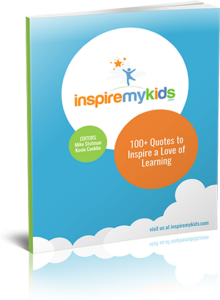
Allie Gleason Shines a Bright Light To Help Young People Understand Asperger’s Syndrome
This is a guest post written by Allie Gleason, a high school student from Cary, North Carolina, with Asperger's Syndrome who spends some of her free time as a volunteer-intern-extraordinaire at EducatorLabs. She is a cheerleader for allthose affected by ASD. We applaud your efforts, Allie!
As a teen with Asperger’s Syndrome (AS), I know that a lot of people don’t understand it. They may know that it is connected to autism, but that’s usually as far as it goes. And that’s the adults. I find that kids my age know even less about it. Usually, they just think we’re odd, and don’t take the time to understand how AS affects how we relate to other people.
Since high school, I’ve begun to try to educate young people about AS and how it affects those living with it. Here is some information and resources to help young people better understand AS:
Keeping a routine. For kids with Asperger’s routine is essential. When I can’t follow my routine, I get really anxious, which makes it more difficult for me to manage some of the characteristics of my AS that other people find off putting. As this article from Women’s and Children’s Health Network notes, high school can be especially difficult for kids with AS because it takes time to get used to having a fluctuating routine. For example, for someone without AS, not having the same classes every day might make for a nice change. But for me, it’s very disruptive. I find comfort in structure and routine. If you have a class with someone with AS, keep that in mind. Be empathetic to the fact that they may be experiencing stress and help to ease their mind if you can.
Staying active. One thing that many people may not understand about autism and Asperger’s is how beneficial physical activity can be. In this guide on how aquatic therapy helps kids with autism, there is a lot of information about the connection between autism and obesity. It also notes how physical activity can help reduce some behaviors, such as repeated motions and hyperactivity, that are often associated with the condition. I can second a lot of the information in this guide, because I’ve greatly benefited from swimming. Not only has it helped me get in physical shape, it has helped me learn how to socialize with my peers.
Making friends. Of all the areas where there are misconceptions and misunderstandings about Asperger’s, this one is probably the most damaging. Many people think kids with Asperger’s like being by themselves and don’t want or need to make friends. Others simply don’t have the patience for building a relationship with a person with AS. This article on Asperger’s and making friends from FriendshipCircle.org does a great job of sharing some of the difficulties kids with AS experience when they try to make friends.
Being on the swim team at my high school has been hugely helpful to me when it comes to making friends. It gives me a common ground with my teammates and that helps me relate to them and them relate to me. But it can be easy for kids with AS to be outcast and for other kids to start thinking that they like being on their own and don’t want to make friends. I would say very rarely is that the case. Kids and teens with AS certainly want to make friends. We just need a little extra time, care, and patience in order to do so.
In Summary. I think it’s important that people understand that many people with AS spend a large part of their interactions with others trying to manage their condition so that they don’t alienate them. But those interactions should go both ways. When people who don’t have AS have a better understanding of it, it will become easier for them to relate to us, and I think that then we’ll all be able to form better relationships because of it.
Here is a great cartoon that explains what it’s like to have Asperger’s Syndrome:
To learn more about Asperger’s Syndrome, check out this video:
To see a a kid, Sam Anderson, who is making the most of the special gifts that Asperger’s Syndrome provides him with, check out this inspiring video:
Additional Resources
- To learn more about Asperger’s Syndrome, read this great article that answers many questions thanks to the Women’s and Children’s Health Network in South Australia
- Several of the world’s most famous historical figures and inventors were thought to have had Asperger’s Syndrome. Here is a list that is quite amazing!
- Check out other IMK inspiring stories about people with autism and Asperger’s Syndrome
Topics for Discussion:
- How do you treat people with special needs? What could you do better?
- How do you think it feels to be someone with Asperger’s Syndrome? How would you want to people to treat you?
- What are a few ways you can be a friend to someone with Asperger’s Syndrome?
- How can Asperger’s Syndrome be a gift?
Take Action:
- Is there someone in your school who has autism or Asperger’s syndrome? Do something nice for them. Be their friend. Include them. You have the power to change someone’s life for the better. Use it.
Teacher Features:
- Here is a link to a Critical Reading Skills worksheet that you can use for elementary school students.
- Here is a link to a Critical Reading Skills worksheet that you can use for middle school students.






